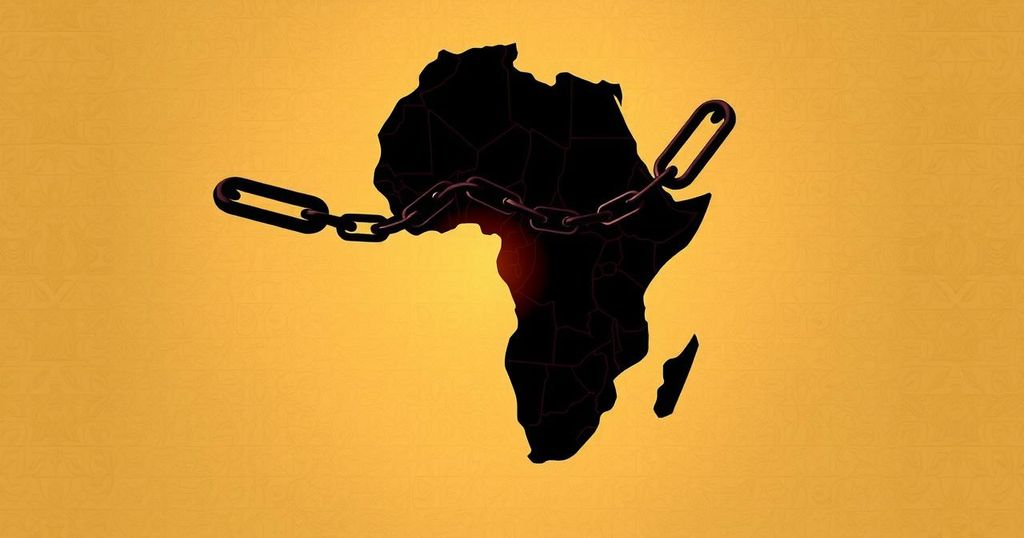The Georgetown Institute for Women, Peace and Security identifies crises impacting women’s rights in Chad, Nigeria, and other nations as critical issues in 2025. The Catholic community responds to controversial immigration policies and pardons issued by President Trump, emphasizing advocacy for humane treatment of immigrants and safeguarding democratic principles.
The Georgetown Institute for Women, Peace and Security has identified crises impacting women in over a dozen countries, including Chad and Nigeria, poised for heightened scrutiny in 2025. The study highlights alarming trends of escalating conflict-related sexual violence and the erosion of women’s rights. This year marks the inclusion of Chad and Nigeria, underscoring the urgent challenges faced by women, particularly in regions affected by climate and conflict.
In Chad, women and girls are particularly vulnerable due to overlapping climate effects and conflict challenges, while in Nigeria, women leaders are pivotal in addressing extremist violence and dire economic conditions. The ongoing crises underscore the significance of safeguarding women’s rights and enhancing their roles in stabilizing their communities.
The report also reviews conditions for women in other affected nations, revealing that the Taliban’s stringent policies in Afghanistan contribute to the severe marginalization of women, resulting in life-threatening consequences. In Haiti, women’s leadership plays a crucial role amid rampant gang violence and threats to their safety, while in Israel, Palestine, and Lebanon, women continue to face significant marginalization.
Observations regarding Syria suggest that despite the potential for increased political participation post-Assad, women remain at risk of repression and violence. In Ukraine, support for women’s organizations is deemed essential as the conflict intensifies. These reports illustrate a pattern of escalating violence against women worldwide and their critical roles in conflict resolution.
In a related topic, the Catholic community has actively condemned the immigration policies enacted by President Donald Trump in January 2025. Organizations such as the Catholic Legal Immigration Network (CLINIC) criticized the moves to eliminate birthright citizenship and to diminish asylum protections, which they argue are contrary to Christian values and the tradition of welcoming immigrants. They described these plans as creating an atmosphere of fear among immigrant communities.
CLINIC affirmed its commitment to advocate for humane immigration policies, emphasizing that the church’s charitable services should not be contingent upon a person’s immigration status. Noteworthy organizations underscored the importance of preserving the trust between service providers and vulnerable populations, asserting that immigration enforcement should be carried out in a manner consistent with human dignity.
There has also been significant dialogue surrounding Trump’s pardoning of individuals involved in the January 6 Capitol breach. The Adrian Dominican congregation deemed these pardons as unprincipled and a danger to democracy, arguing they undermine the rule of law and erode public trust in governance. They asserted that true acts of mercy come with accountability, urging reflection on the consequences of these pardons for democratic institutions.
The current global landscape regarding women’s rights in conflict zones reflects a dire state where women’s safety and participation are increasingly jeopardized. The Georgetown Institute for Women, Peace and Security’s Conflict Tracker illustrates that many nations face conflict-related crises affecting women’s basic rights. In parallel, scrutiny of domestic political actions, such as immigration reforms and executive pardons, reveals challenges to social justice, rule of law, and community cohesion.
The articles shed light on the grave challenges women face in regions shaped by conflict and governance failures. It emphasizes the need for concerted efforts to uphold women’s rights, secure their leadership roles in crisis management, and create an environment where humane immigration policies are honored. Furthermore, the implications of political decisions, such as pardons, illustrate an urgent need to reinforce democratic principles and accountability in governance.
Original Source: www.globalsistersreport.org






